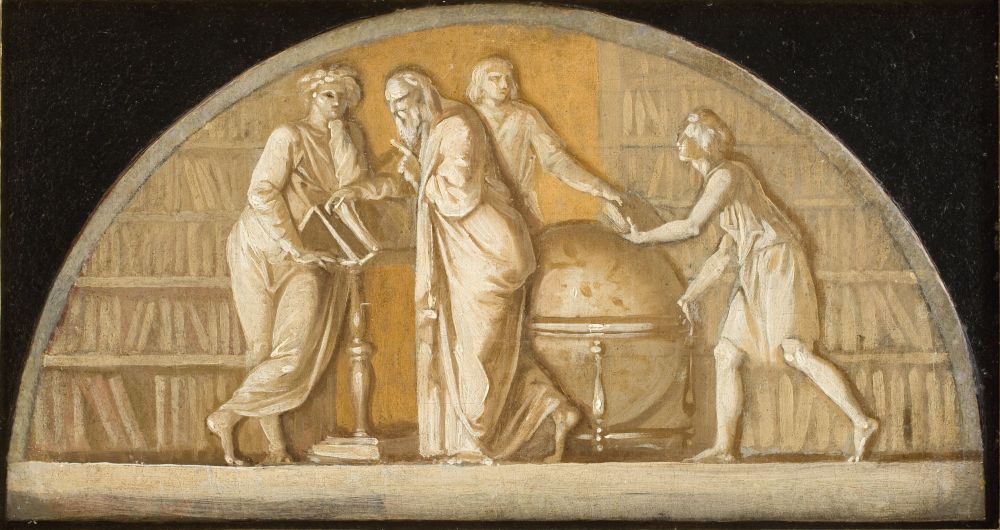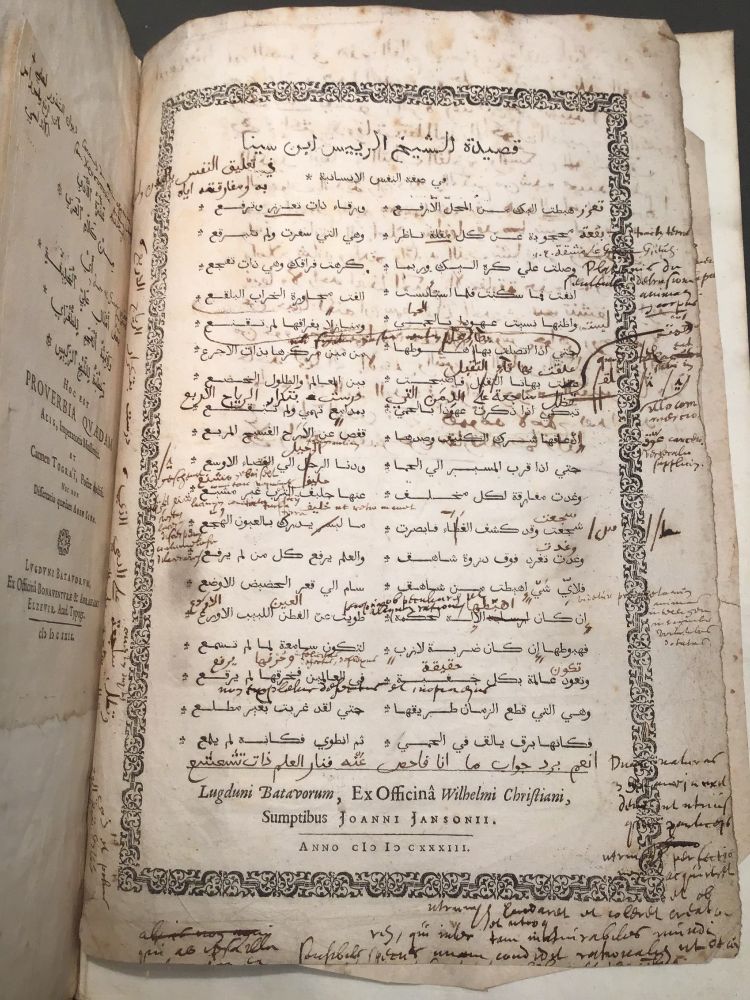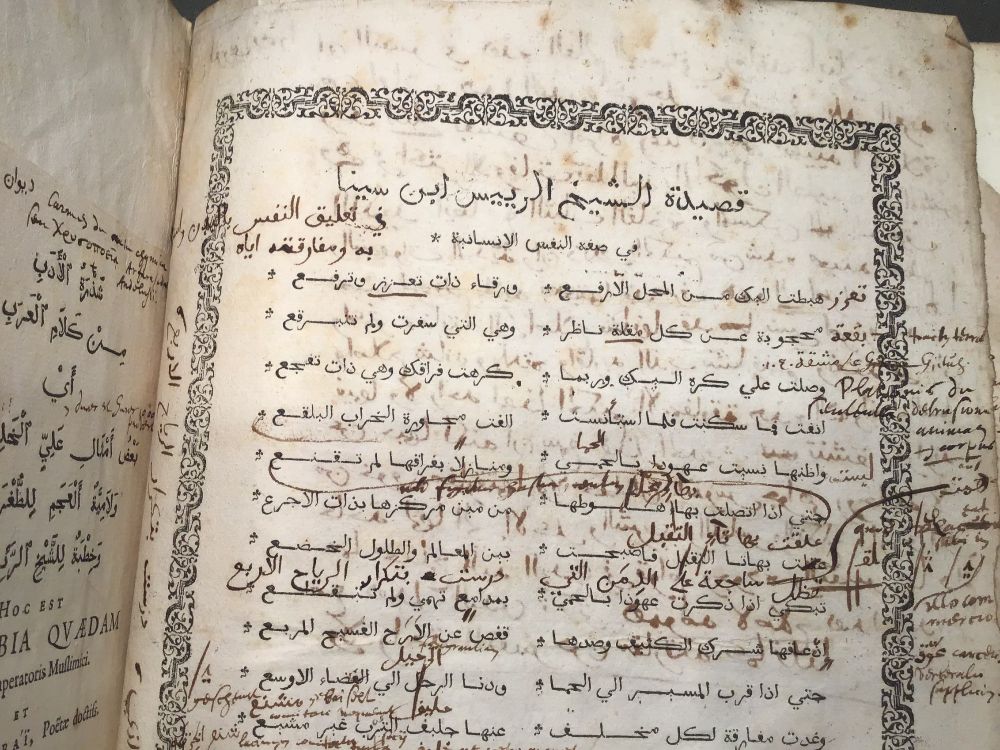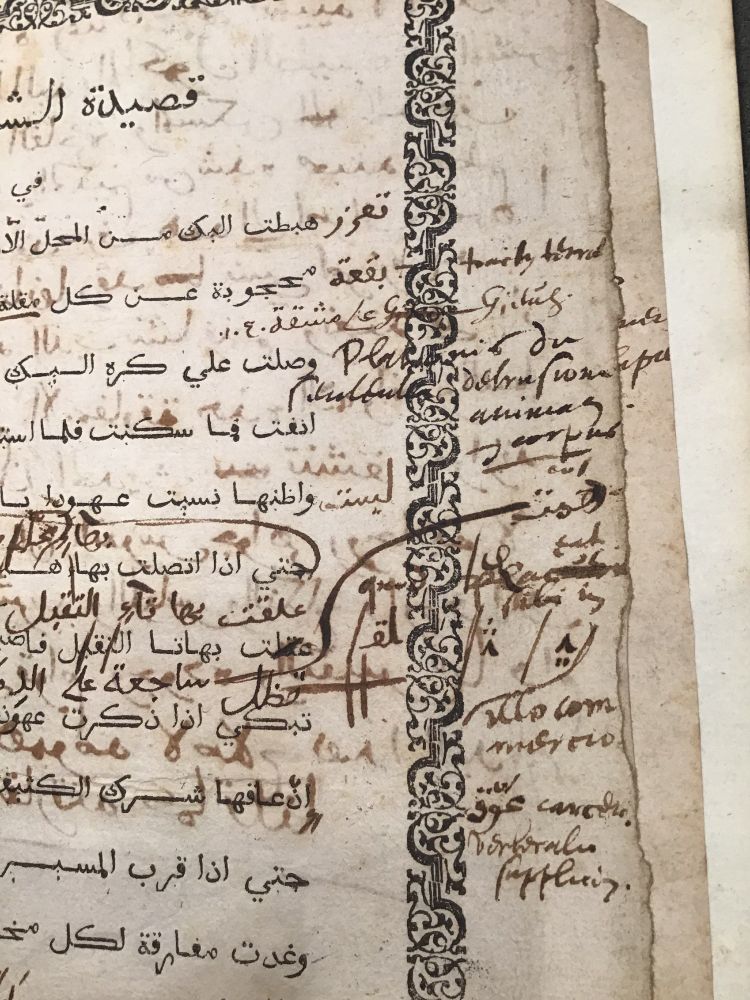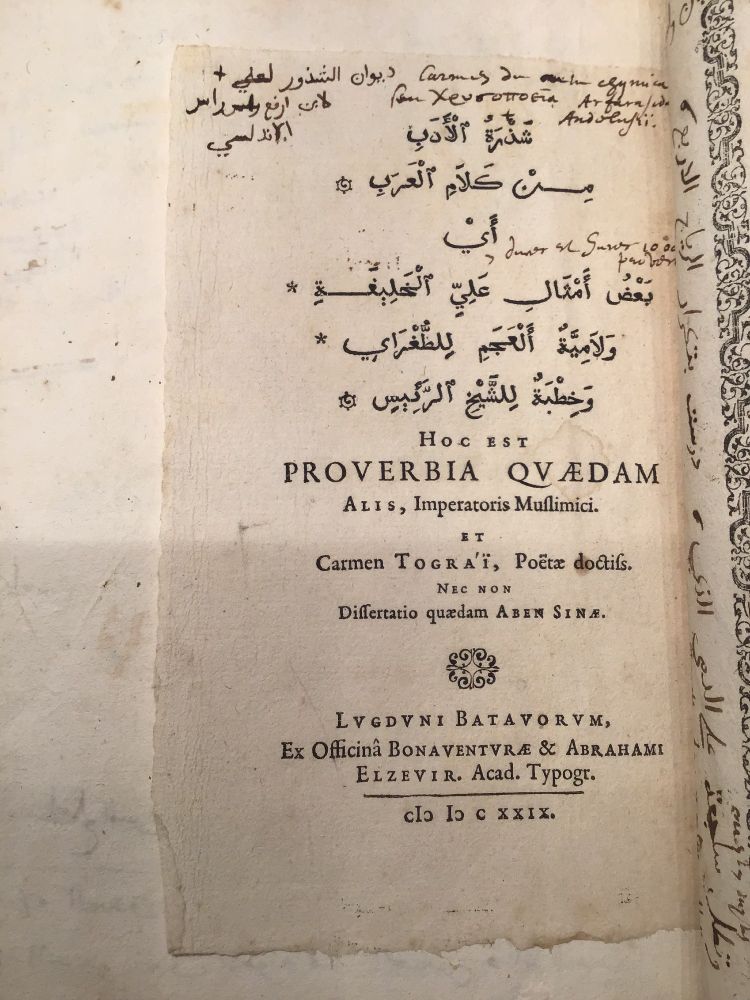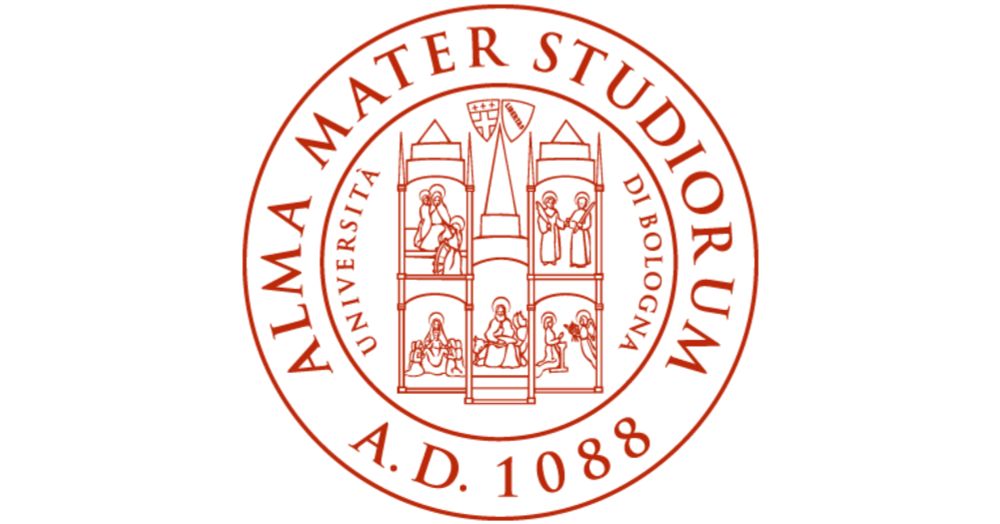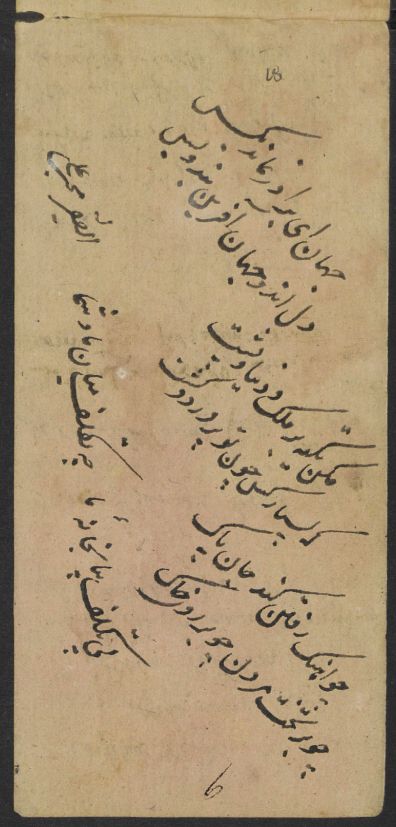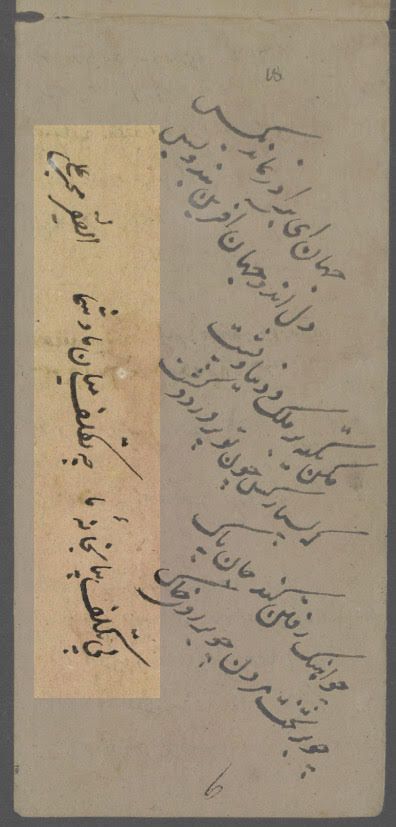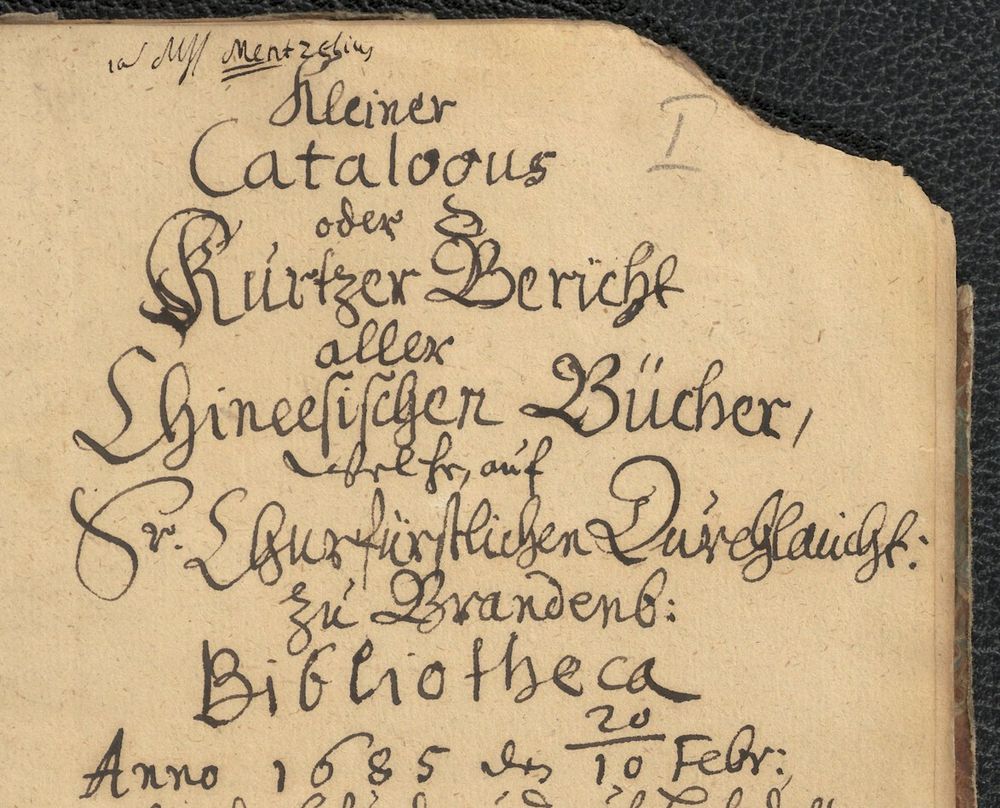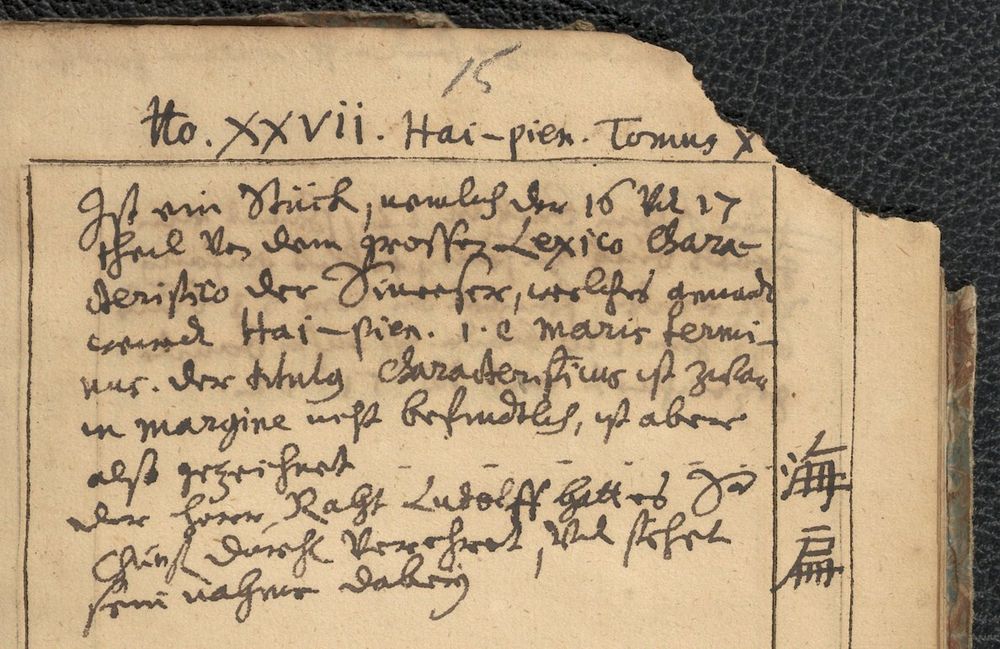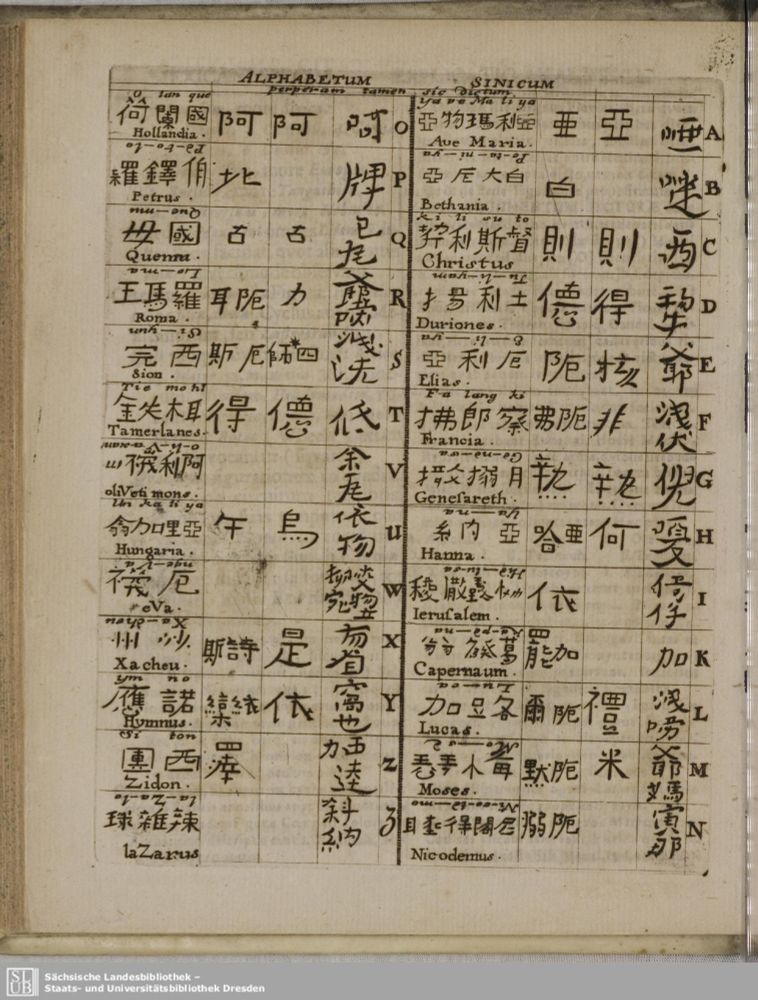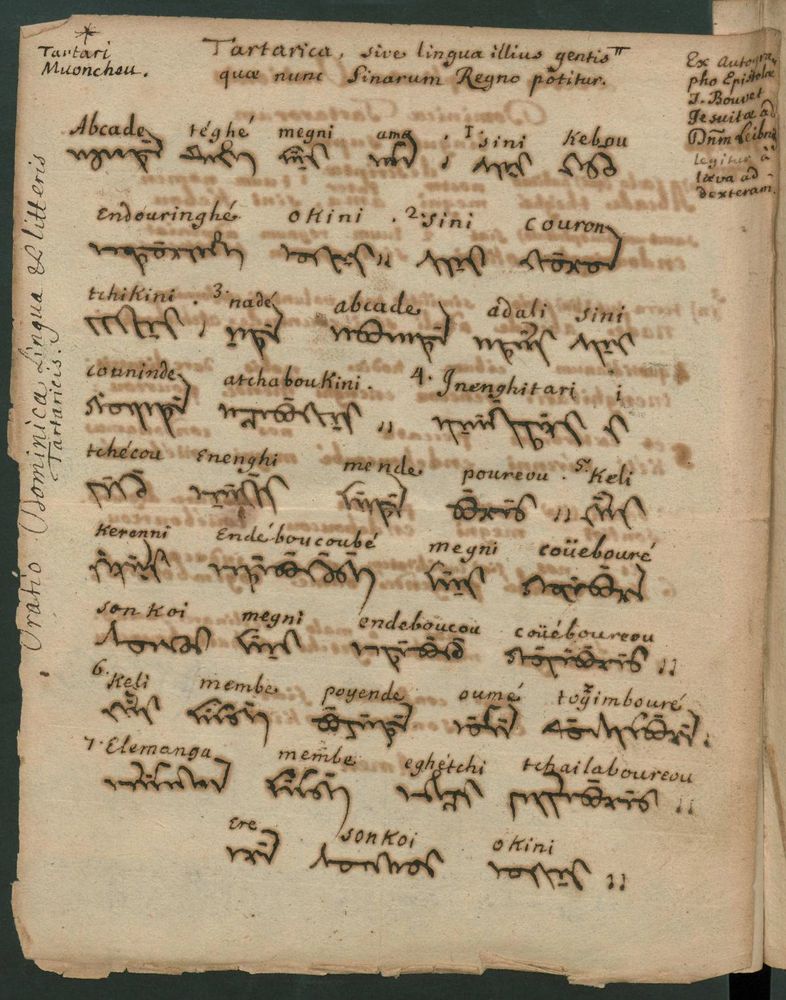Indeed, Leemann doesn't line up chronologically. Maybe the notes are earlier, and in a different hand (though the handwriting is similar). Perhaps recorded from annotations in another copy? Always possible there's a textual source but can't find it and there are no page numbers.
06.11.2025 03:30 — 👍 1 🔁 0 💬 0 📌 0
Not exactly news (since the semester began in August), but I’m very happy to have started a position as an Assistant Professor in the Department of Religion at the University of Georgia.
05.11.2025 21:39 — 👍 11 🔁 0 💬 4 📌 0
If there's anything more exciting than seeing a book you work on in an exhibition, it's surely being invited to talk about it. Very excited for this event next month!
📷 Lancelot Browne's annotated copy of Avicenna in Arabic at the @rcpmuseum.bsky.social exhibition, 'A body of knowledge'.
04.11.2025 12:12 — 👍 24 🔁 8 💬 3 📌 0
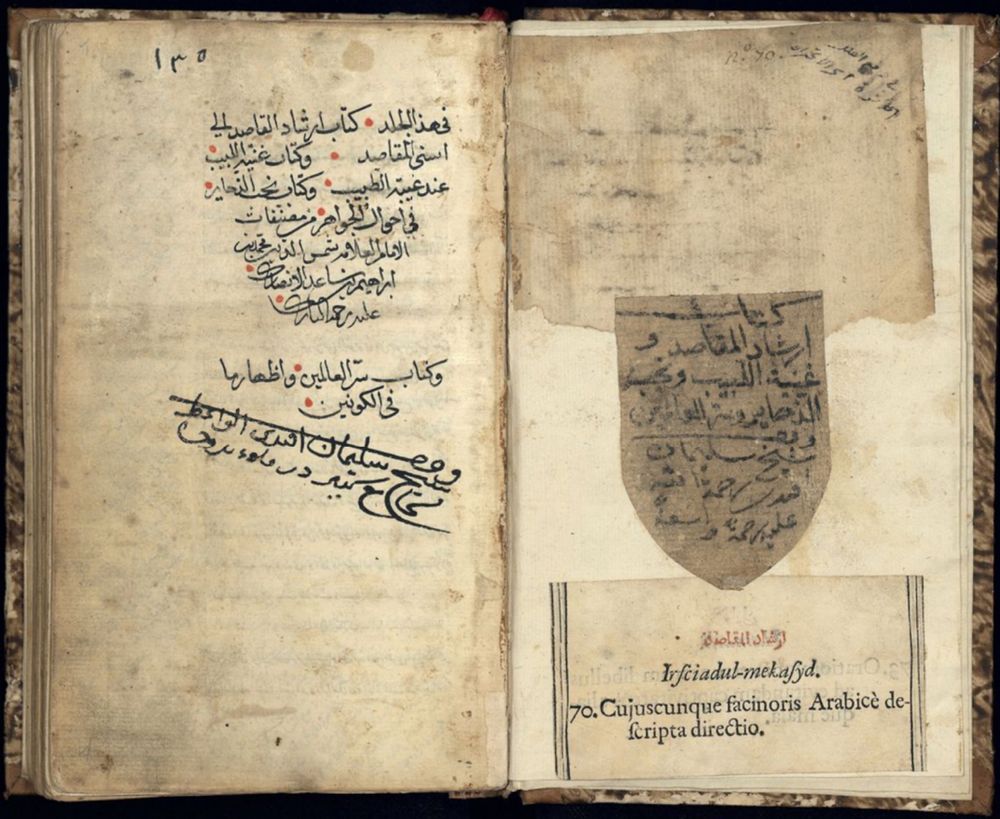
Ms. 3406, Süleyman Efendi’s endowment deed on folio 1r. Bologna, Biblioteca Universitaria di Bologna, ms. 3406 © 2023 by AMS Historica is licensed under CC BY-NC-ND 4.0
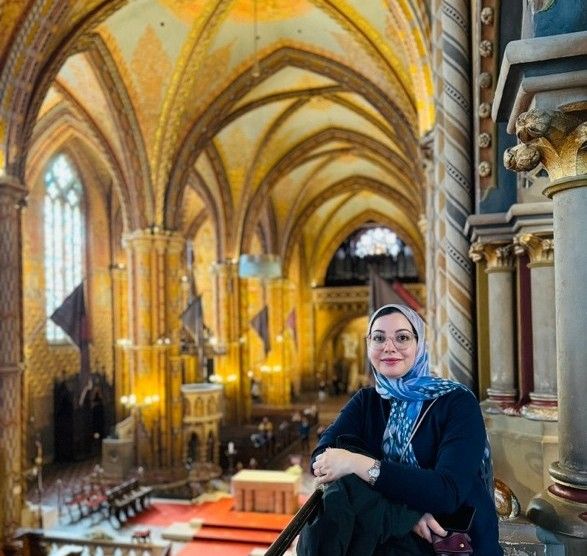
Rawda El-Hajji visiting the Church of Our Lady of Buda Castle, Budapest. © Ashraf Sarip
Once a hub of Ottoman culture, Süleyman Efendi’s library was scattered by conquest. In our PhD Research Series, Rawda El-Hajji traces these manuscripts, showing how they help reconstruct lost intellectual communities and reveal the fate of cultural heritage in times of conflict:
uhh.de/csmc-el-hajji
06.08.2025 13:05 — 👍 29 🔁 9 💬 0 📌 0
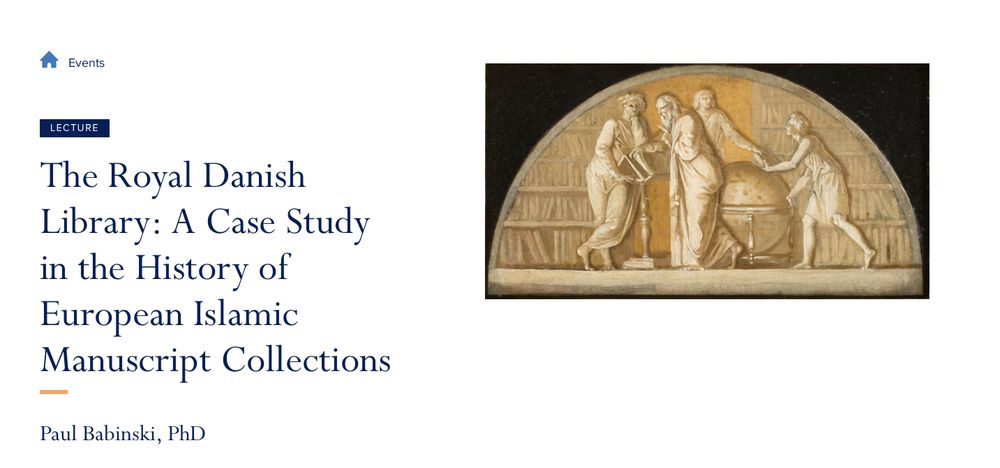
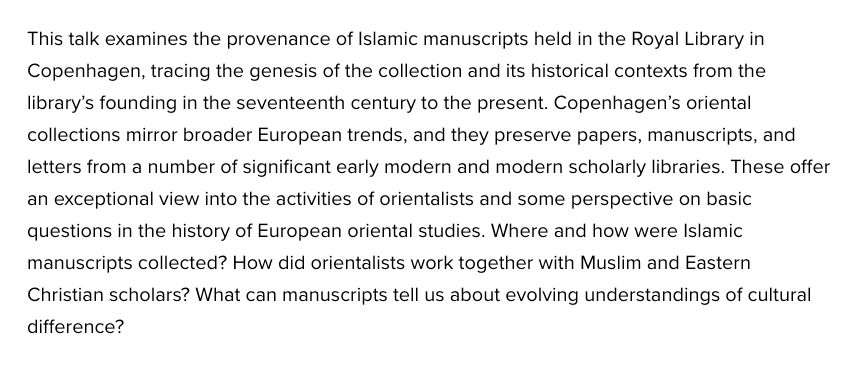
This Friday I'll give a talk online (for UPenn's Schoenberg Institute) on the collection of Islamic manuscripts at the Royal Library in Copenhagen. Please come (link below)! I’ll be highlighting some of the new finds made by the Copenhagen team of the EuQu project.
22.04.2025 16:36 — 👍 13 🔁 6 💬 1 📌 0
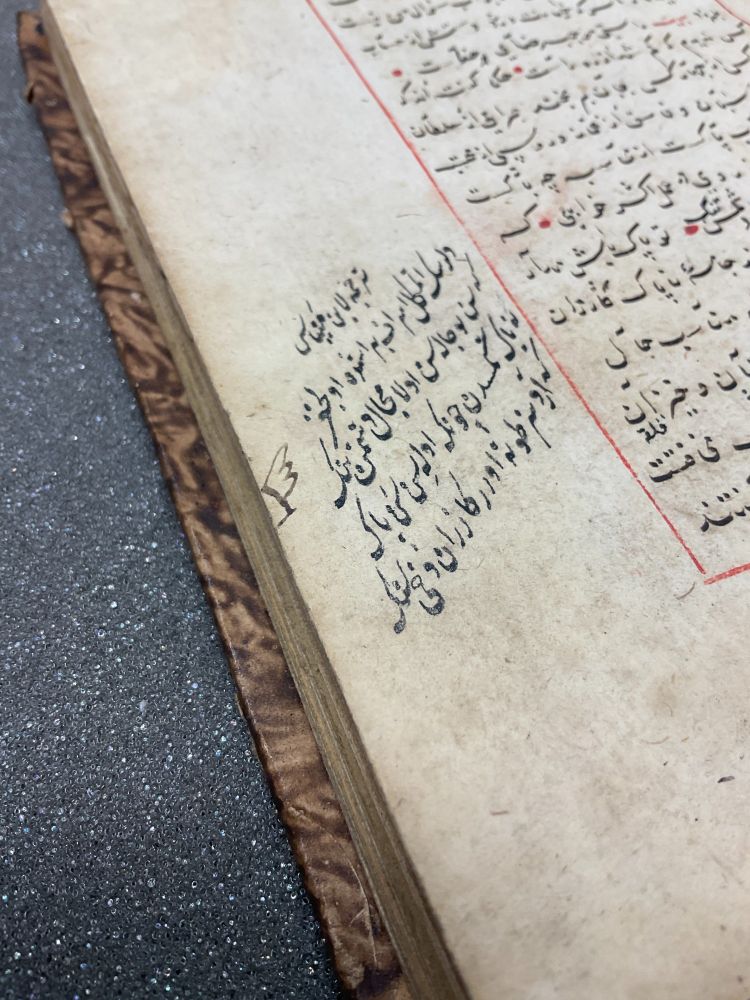
Early modern manicule left by an orientalist in a Bologna copy of Saʿdī’s Gulistān. It points to an Ottoman marginal note with the fifteenth-century Turkish translation (by Manyaslı Mahmud) of a passage in the Persian text. Bologna University Library, ms 3280.
14.03.2025 08:15 — 👍 14 🔁 2 💬 0 📌 0
That sounds promising. Thank you!
01.03.2025 17:26 — 👍 1 🔁 0 💬 0 📌 0
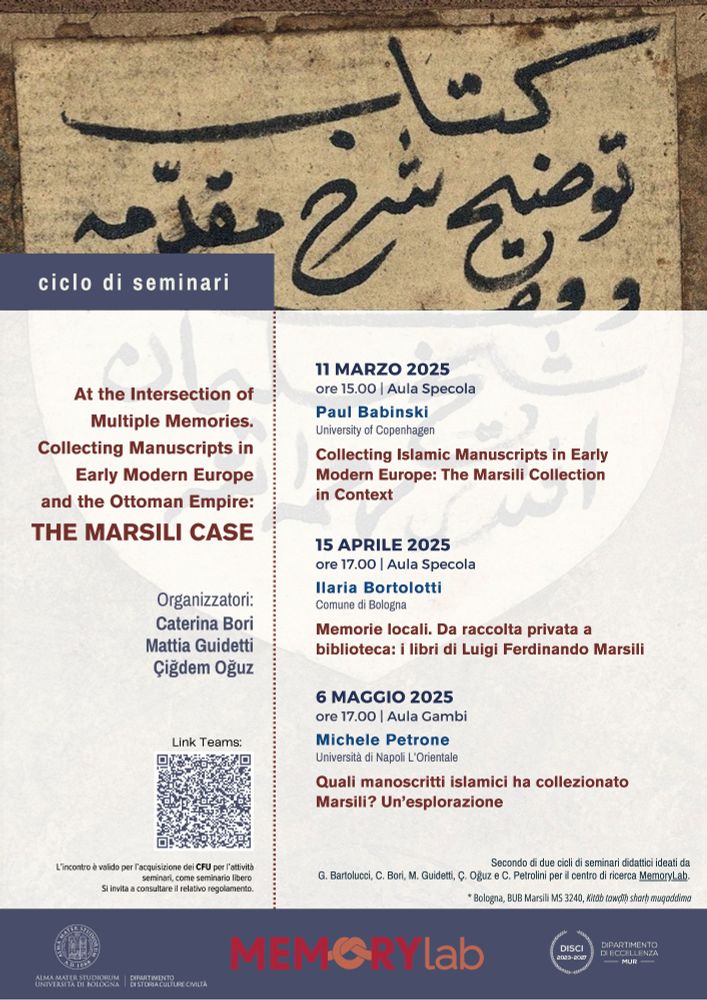
I’m very excited to be speaking on March 11 at the University of Bologna on the history of collecting Islamic manuscripts in Europe, for the series “At the Intersection of Multiple Memories. Collecting Manuscripts in Early Modern Europe and the Ottoman Empire: The Marsili Case”
01.03.2025 16:58 — 👍 20 🔁 4 💬 1 📌 0
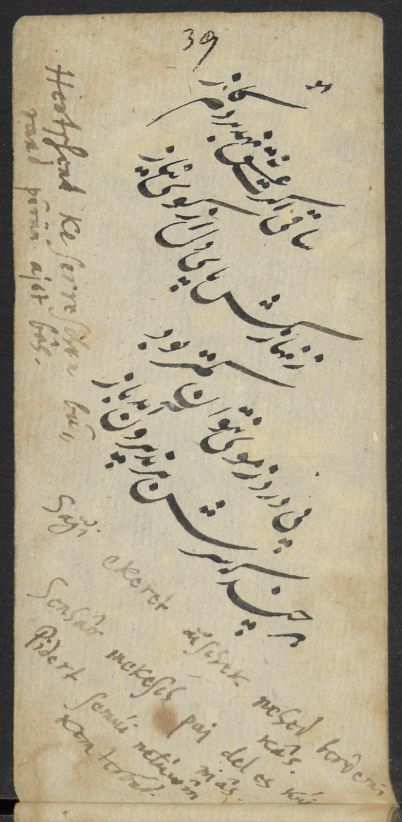
Olearius’s notebook is today (with a number of other Olearius manuscripts) in the Berlin State Library and was recently digitized: resolver.staatsbibliothek-berlin.de/SBB0002F6C50...
09.01.2025 20:12 — 👍 2 🔁 0 💬 0 📌 0
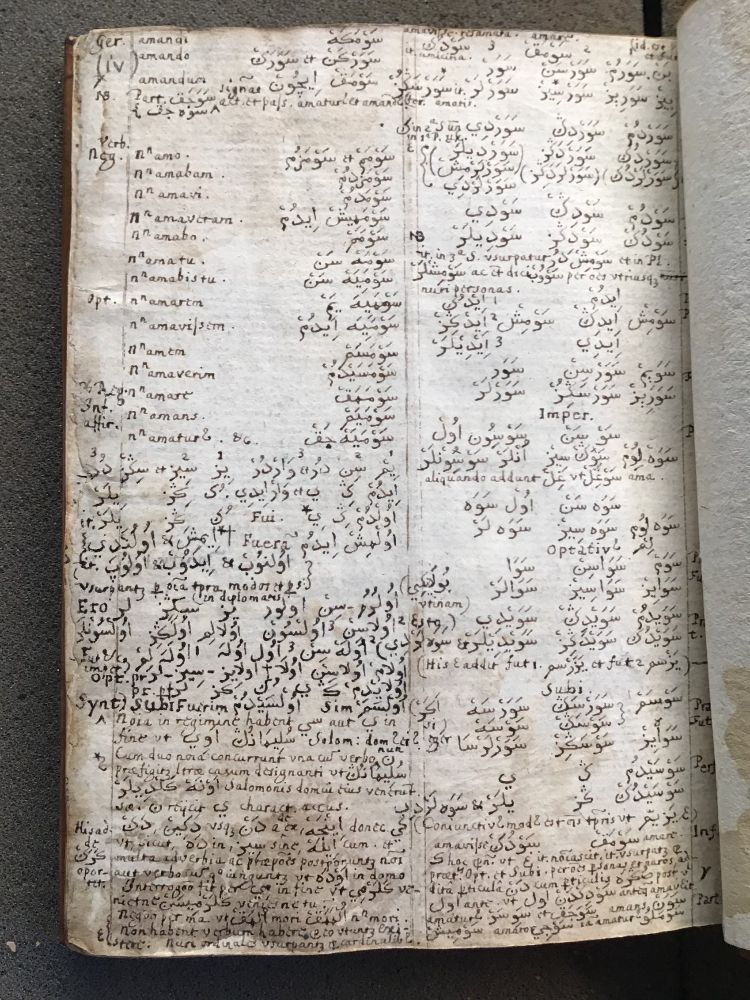
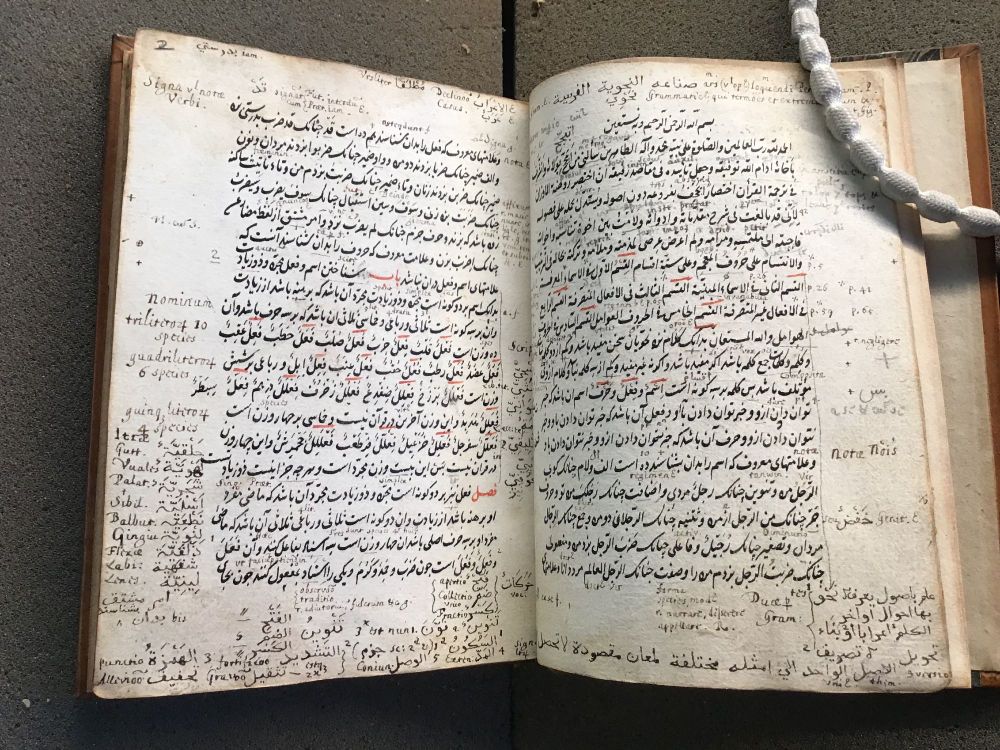
The three languages of Ottoman learning: notes on Turkish grammar (with the conjugation of "sevmek", to love) recorded by the English orientalist John Greaves (1602-1652) on the flyleaf of a Persian-language grammar of Arabic, also annotated by Greaves. Bodleian, ms Pococke 28.
08.01.2025 02:00 — 👍 18 🔁 3 💬 1 📌 0
Robyn's done incredible work on the subject and has managed to track down a bunch of these Istanbul albums. Fascinating manuscript. Thanks for sharing!
06.01.2025 16:58 — 👍 1 🔁 0 💬 0 📌 0
A fascinating meeting of two manuscript cultures. The Newberry manuscript uses Ottoman silhouetted paper (with columns for the two hemistichs of Ottoman poetry), turned 90° to record Latin/French sayings. For reference: a collection of Turkish poetry (KB-Copenhagen, ms Cod. Turc. 21)
06.01.2025 16:42 — 👍 11 🔁 0 💬 1 📌 0
@robyndoraradway.bsky.social
06.01.2025 16:25 — 👍 1 🔁 0 💬 0 📌 0
I think this misrepresents Marchand's criticism of Said, and I certainly wouldn't call her account of nineteenth-century oriental studies de-politicized.
06.01.2025 15:52 — 👍 0 🔁 0 💬 1 📌 0
This isn't necessarily bad. It can be a transformative experience to read Kafka with an expert teacher and reader. That person doesn't need to be much of a researcher. But it's pseudo-scientific to not distinguish that from, say, the work of identifying and editing Kafka's manuscripts.
29.12.2024 17:14 — 👍 1 🔁 0 💬 0 📌 0
Well, not frowned on if we're using the "everything professors write and think" standard. Some subfields (medieval, early modern) can be more research heavy, but that's not where the hiring is these days. "Research is what you do with your friends in your free time" one senior scholar told me.
29.12.2024 17:02 — 👍 1 🔁 0 💬 1 📌 0
In lit fields, research is generally frowned upon (how many get a TT job on the basis of a great edition?). But the vocabulary of "research" sounds good when you're asking for extra funding, sabbatical, etc.
29.12.2024 16:35 — 👍 1 🔁 0 💬 1 📌 0
Yes, though I don't think all (or even most) humanities work is research. There are real deficiencies in US humanities research, but that's in no small part due to the priorities of professors, hiring committees, admin.
29.12.2024 16:21 — 👍 1 🔁 0 💬 1 📌 0
I don't know, I think using the word "research" to mean "everything university professors in the humanities think and write" is pseudo-scientific and fetishizing, and obscures clear analysis of the research question (I mean, do libraries and museums play any role in this story??)
29.12.2024 16:11 — 👍 1 🔁 0 💬 1 📌 0
Not a big fan of Newfield's writing and find him unnecessarily jargony ("epistemic justice") and unclear (what is humanities research mean here, exactly?), but he's definitely right that the academic omerta is counterproductive.
29.12.2024 15:55 — 👍 1 🔁 0 💬 1 📌 0
Of course it's not unreasonable, and it's wrong to imagine Muslim classmates acquire knowledge of historical fact by some kind of osmosis. I just mean to say those complaining are glimpsing the profundity of their ignorance and the absence of the ambient awareness they benefit from in other areas.
23.12.2024 18:41 — 👍 1 🔁 0 💬 1 📌 0
I think there's a bit of truth in this, in that many are starting from absolute zero with the Near East/Islamic history, having none of the ambient accumulation of basic facts that might be there with, say, the US or Western Europe. A very real failure of primary and secondary school education.
23.12.2024 18:26 — 👍 1 🔁 0 💬 1 📌 0
Art Historian, teaching at Universidad de Salamanca. Goya, antiquaries, collecting, books, prints
https://produccioncientifica.usal.es/investigadores/157360/detalle?lang=en
https://link.springer.com/book/9783032068392
Yiddish, German, literature, art, monuments, museums.
My book about 4 of the above: https://www.sup.org/books/title/?id=33157
Associate Professor @ Johns Hopkins.
Account of the DFG Project "Qalamos". #manuscripts #Asia #Africa #catalogs | @stabiberlin.bsky.social | Bayerische Staatsbibliothek | Universität Leipzig | Website: www.qalamos.net | Blog: https://od-portal.hypotheses.org
Historian. Senior Lecturer. early modern & maritime history & forced labor & enslavement & Ottoman history & German local history & connected history || hiking 🌄
The Bibliographical Society exists to promote the study of the history of the book, for librarians, collectors, historians and book lovers everywhere.
Historisch Nieuwsblad is hét tijdschrift over geschiedenis in Nederland. Vol historische achtergronden, nieuw ontdekte feiten, actualiteiten en recensies.
Historian/Medievalist with PhD, Bremen and elsewhere, private profile. Blocks Profiles without info
Universität Leipzig | Institut für Germanistik | Philologie | Literatur- und Ideengeschichte | Archive | Bibliotheken | Museen | Fondation Rilke, VS, CH
https://marcel-lepper.net/
🙋 Dayjobber
📚 PhD in Religion
☀ Obsessed with Egyptian-Coptic historical linguistics
Bylines on everything from cults to culture.
Low-volume posting (focusing on writing and research!).
www.mihalyfy.com
🇺🇲 Illinois, U.S.A.
Asst. Professor, Santa Clara University
Historian of Sufism, Islamic reform and political theology in Mughal South Asia.
Literature prof, Eastern Michigan U // Anticolonial internationalisms, Cold War, and migration studies // Author, Narrating Post/Communism; Uncommon Alliances; Nonaligned Imagination.
www.emich.academia.edu/NatasaKovacevic
Mostly trying to understand the #Timaeus.
Warburgian, #Begriffsgeschichte, #alphanumeric systems ( علم الحروف، ابجد), diagrams, armillary stuff, #medieval #mss, Graeco-Arabica, #Islamic studies…to the tune of #BWV988 @cienciasulisboa.bsky.social #CIUHCT
Prof. of New Testament Studies at the University of Georgia, co-editor of AGNTS (https://agntsjournal.com), translator, runner, disc golfer, aging soccer player, one who enjoys being with his family & friends. I post on NT scholarship. Views are my own.
Professor of Medieval History, University of Oslo. Interested in cultural, intellectual, religious, and legal history, vikings, early Rus/Ukraine, manuscripts, medieval world history. President of the Institute of Medieval Canon Law. #medievalcanonlaw
A data hub & scholarly network on historic printed books & manuscripts.
www.cerl.org
Assistant Prof of Colonial Environmental History & Decolonial Futures @uvahumanities.bsky.social | erstwhile JRF @MagdaleneCollege.bsky.social & @leverhulme.ac.uk ECF @camhistory.bsky.social | PhD Cambridge HPS | https://shorturl.at/i7kip | he | 🍉🌻🟥
PhD candidate at Universität Hamburg | CSMC.
Manuscripts | Book Culture | Book History in late Ottoman period.
Art historian. Forthcoming: a critical edition of Prince George of Denmark's travel diary detailing his time in Restoration England, 1669. Danish-British Consort Portraiture, c.1600-1900, Lund Humphries, 2023. Essays in OAJ and JHNA.
Historian of #earlymodernity, #gender, #youth & #academiclife. Writing in Finnish, Swedish & English. https://orcid.org/0000-0003-2947-4675.
Also interested in knitting, reading and guinea pigs
Leverhulme ECF, Edinburgh Uni, writing The Living Judas in Medieval Text and Image for Cornell UP.
Love and anti-Judaism in medieval English romance (Manchester UP, 2025); Co-ed, Towards An Accessible Academy (MIP, 2025).
Volunteer, MCR Pathways.
She/her














